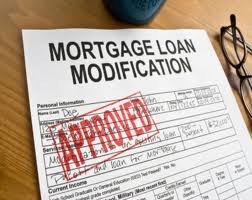 Why aren’t we seeing any legislation or rules addressing servicers’ inability and unwillingness to modify loans even when the modification is clearly in the best interest of the investor-owner of the mortgage? Florida foreclosure defense and bankruptcy attorneys see the conflict of interest daily between mortgage servicers and their own clients, why doesn’t the government?
Why aren’t we seeing any legislation or rules addressing servicers’ inability and unwillingness to modify loans even when the modification is clearly in the best interest of the investor-owner of the mortgage? Florida foreclosure defense and bankruptcy attorneys see the conflict of interest daily between mortgage servicers and their own clients, why doesn’t the government?
Servicers say they are doing their utmost to help homeowners in need. I say Pinocchio. Uncle Sam has proposed HAMP, HARP and a few other programs. However, the servicers just shrug and pretend to comply, while pocketing trial payments and huge servicing fees. It is a well known fact that servicers get paid much more when a loan is in default and eventually forecloses. Until we address the conflict of interest and incentivize servicers to modify loans, nothing will change. Pinocchio is running this show.
In an interview on January 28, 2012, by CNN Your Bottom Line host Christine Romans, Chip Parker, a foreclosure defense attorney in Jacksonville, Florida states it’s definitely systematic. He describes how it’s a daily occurrence that a mortgage servicer such as Citi Mortgage or Wells Fargo will absolutely refuse to work with someone, even though a VA guideline requires it when the VA guarantees those loans.
 Reboot Your Life: Tampa Student Loan and Bankruptcy Attorney Blog
Reboot Your Life: Tampa Student Loan and Bankruptcy Attorney Blog


 Our Florida clients have recently been asking me if there is a new law allowing them to reduce their mortgage balance to the value of their home. This is not accurate and I am not sure where this is coming from. My guess it may be from somewhat misleading and overly optimistic advertisement flyers that are sent to people who have a foreclosure filed against them.
Our Florida clients have recently been asking me if there is a new law allowing them to reduce their mortgage balance to the value of their home. This is not accurate and I am not sure where this is coming from. My guess it may be from somewhat misleading and overly optimistic advertisement flyers that are sent to people who have a foreclosure filed against them. Mortgage modifications are often determined by whether the owner (not servicer) is either a participant in HAMP or a recipient of TARP bailout funds.
Mortgage modifications are often determined by whether the owner (not servicer) is either a participant in HAMP or a recipient of TARP bailout funds. The Bankruptcy Court for the Middle District of Florida, Tampa Division, has recently implemented a mediation program for homeowners wishing to modify their first mortgages. The Orlando Division has had a
The Bankruptcy Court for the Middle District of Florida, Tampa Division, has recently implemented a mediation program for homeowners wishing to modify their first mortgages. The Orlando Division has had a  Over the past few years in our foreclosure defense and bankruptcy practice, we’ve learned a little bit about mortgage modification in Florida and here are some tips and tricks of which homeowners should be aware:
Over the past few years in our foreclosure defense and bankruptcy practice, we’ve learned a little bit about mortgage modification in Florida and here are some tips and tricks of which homeowners should be aware: The ordinary household is drowning in mortgage debt. Sure, some homeowners were reckless, but most were not. Regardless of fault however until the mortgage crisis is fixed and our unemployment is cut in half, our country’s households will continue their downfall. This Thursday, President Obama is to announce some sort of plan to reduce unemployment and provide solutions to our mortgage crisis.
The ordinary household is drowning in mortgage debt. Sure, some homeowners were reckless, but most were not. Regardless of fault however until the mortgage crisis is fixed and our unemployment is cut in half, our country’s households will continue their downfall. This Thursday, President Obama is to announce some sort of plan to reduce unemployment and provide solutions to our mortgage crisis. NACBA (National Association of Consumer Bankruptcy Attorneys) responded this weekend to the government’s latest approach to the foreclosure crisis with what I call the
NACBA (National Association of Consumer Bankruptcy Attorneys) responded this weekend to the government’s latest approach to the foreclosure crisis with what I call the